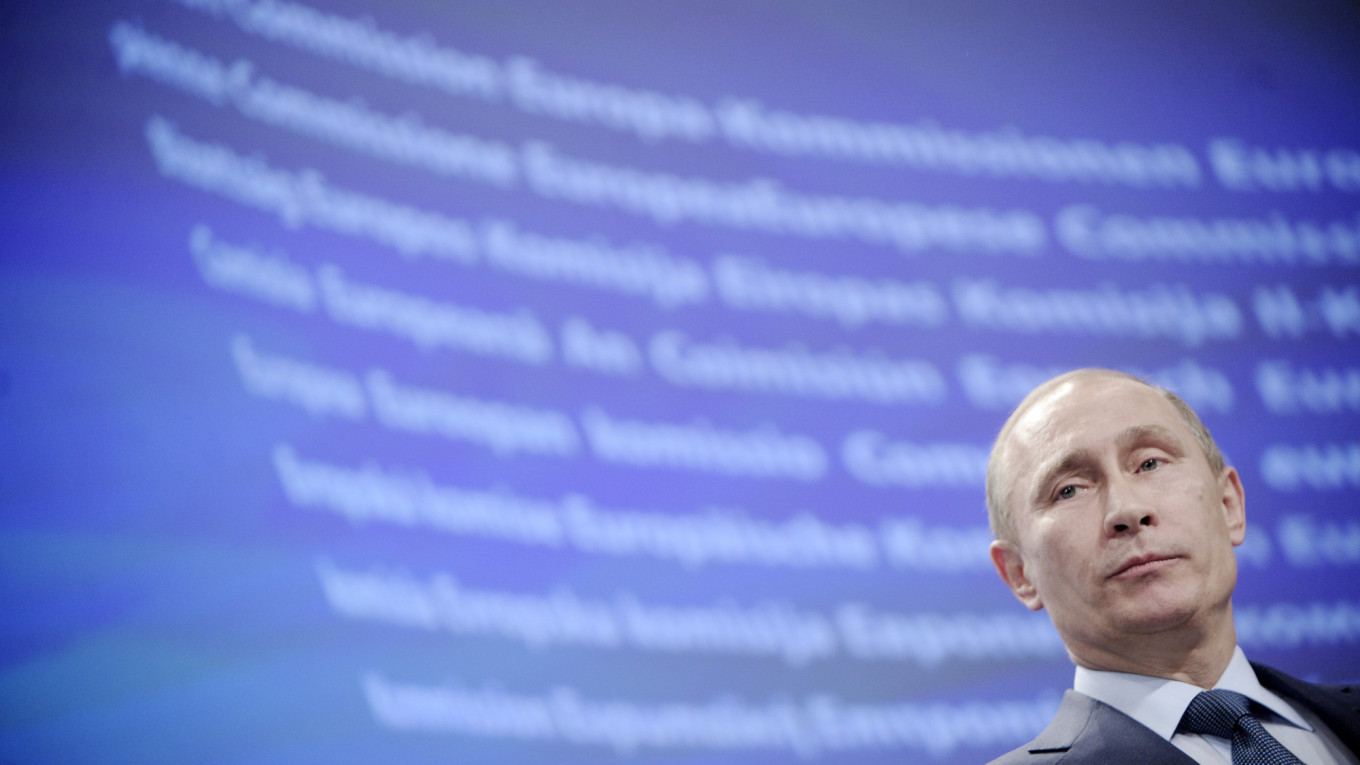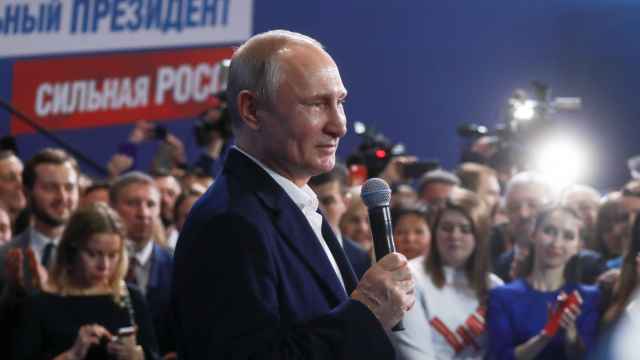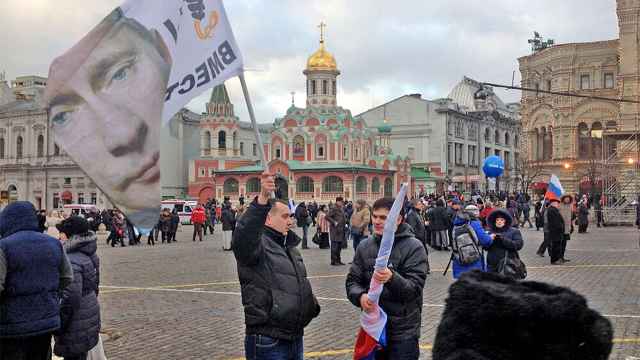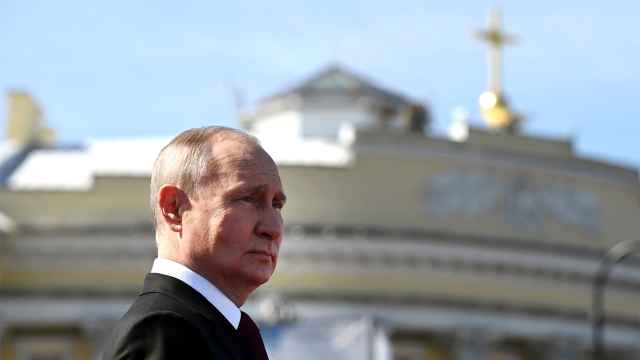Nearly one month after Russian President Vladimir Putin was re-elected to a fifth term, the European Parliament remains unable to agree on a resolution to reject the election’s legitimacy.
Putin, who has led Russia with an increasingly tight grip for over two decades and is at war with Ukraine, claimed 87% of the vote in a tightly controlled election that saw widespread reports of voter fraud and falsification.
European MPs are now divided over whether to recognize the presidential election as illegitimate — or to deem Putin’s new term illegitimate altogether.
The parliament’s more hawkish voices have called for declaring Putin’s fifth term illegitimate. Its more moderate forces balk at that step, as it would effectively mean abandoning any chance of negotiating with representatives from Moscow.
Negotiations and debates have been taking place within and between the European Parliament’s parties in recent days, The Moscow Times has learned.
They have two chances left to reach a consensus before its current session ends: a “mini-plenary” session this week in Brussels and a parliamentary session at the end of April in Strasbourg.
The lack of a unified position and the lack of time — as well as the EU Parliament’s packed agenda as the session comes to a close — could result in no resolution on the Russian election being issued at all.
Another option — condemning how the presidential campaign and the voting itself were carried out — can only be made by statements of the leaders of political factions or in a statement by EU Parliament President Roberta Metsola.
A decision is expected to be made on Wednesday, Petar Tanev, freelance adviser to the Bulgarian delegation to the EU Parliament, told The Moscow Times.
However, there is still a chance that a resolution could be issued, Sergei Lagodinsky, a German MEP (Greens/EFA), told The Moscow Times.
"I believe that we are obliged to adopt a resolution. We have to say in this way that the elections were illegitimate. The process itself was illegitimate, also because of fraud and voting in the occupied territories," Lagodinsky said.
Going further by refusing to recognize Putin's new term requires political will and consensus, he said.
"Naturally, there are those who would love to write that the Russian president is illegitimate. I am more cautious in this matter," Lagodinsky said.
The European Parliament has no authority to regulate the EU's foreign policy, and its resolutions do not require any concrete actions to be taken.
However, it is an important symbolic act that can set the tone for European policymaking.
Early talks advocating for the EU to not recognize the Russian presidential election started in early 2024. At the time, Andrius Kubilius, the European Parliament's special rapporteur on Russia (Lithuania, European People's Party), had recommended discussing the matter once the Russian election was over.
A month before the election, Russia’s opposition in exile called on the European Parliament not to recognize its results.
The Parliamentary Assembly of the Council of Europe has taken a tougher stance.
In an October 2023 resolution, it called on Council of Europe member states to recognize Putin "as illegitimate after the end of his current presidential term and to cease all contact with him, except for humanitarian contact and in the pursuit of peace."
There are two mainstream views shared by both the centrists and radicals in the EU Parliament, said Ivan Preobrazhensky, an expert on Central and Eastern Europe.
"The position that Putin is illegitimate — [that] there were no democratic elections — is shared by almost everyone. As for the second position — is Putin legitimate and does the majority of Russians support him? — there is absolutely no consensus,” Preobrazhensky said.
“And therefore, there is no consensus on not recognizing his new term.”
But when these two camps enter discussions, he said, they are joined by the forces in the EU Parliament who share the European Commission's view: that negotiating with Putin is inevitable.
"Their position is that if the radicals sell their decision, it will allow them to communicate neither with Putin's foreign minister, nor with Russian representatives in international organizations, nor with Russian ambassadors,” Preobrazhensky said.
“And how will we negotiate with him? War ends in negotiations anyway.”
A Message from The Moscow Times:
Dear readers,
We are facing unprecedented challenges. Russia's Prosecutor General's Office has designated The Moscow Times as an "undesirable" organization, criminalizing our work and putting our staff at risk of prosecution. This follows our earlier unjust labeling as a "foreign agent."
These actions are direct attempts to silence independent journalism in Russia. The authorities claim our work "discredits the decisions of the Russian leadership." We see things differently: we strive to provide accurate, unbiased reporting on Russia.
We, the journalists of The Moscow Times, refuse to be silenced. But to continue our work, we need your help.
Your support, no matter how small, makes a world of difference. If you can, please support us monthly starting from just $2. It's quick to set up, and every contribution makes a significant impact.
By supporting The Moscow Times, you're defending open, independent journalism in the face of repression. Thank you for standing with us.
Remind me later.







